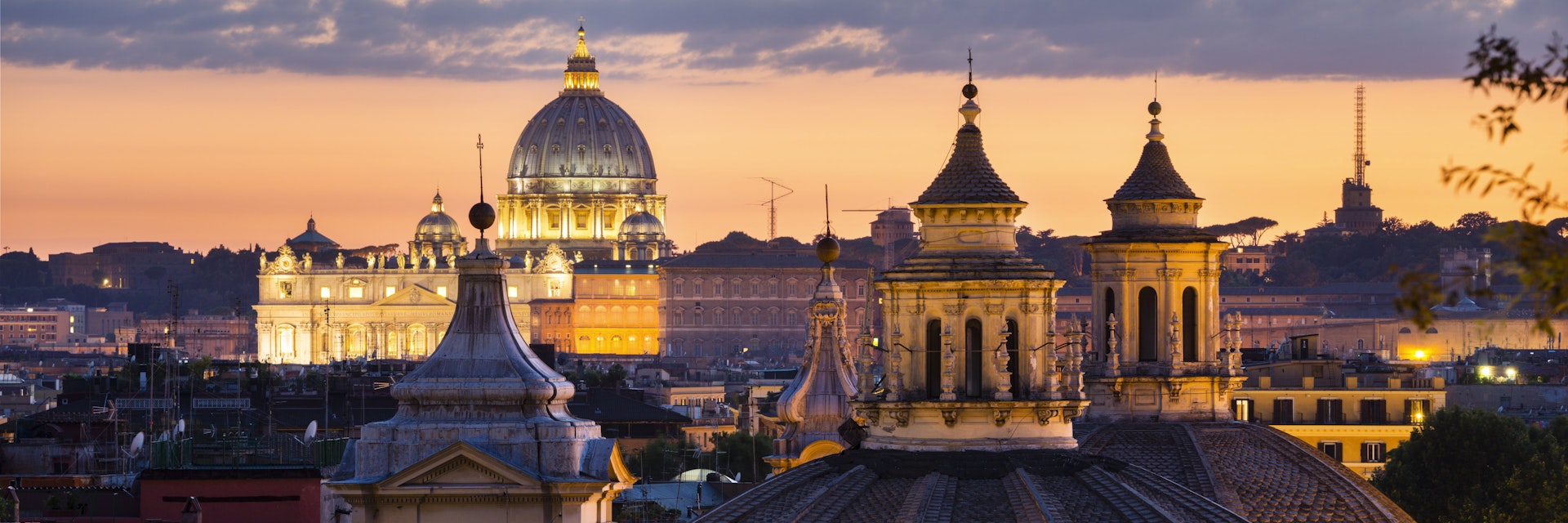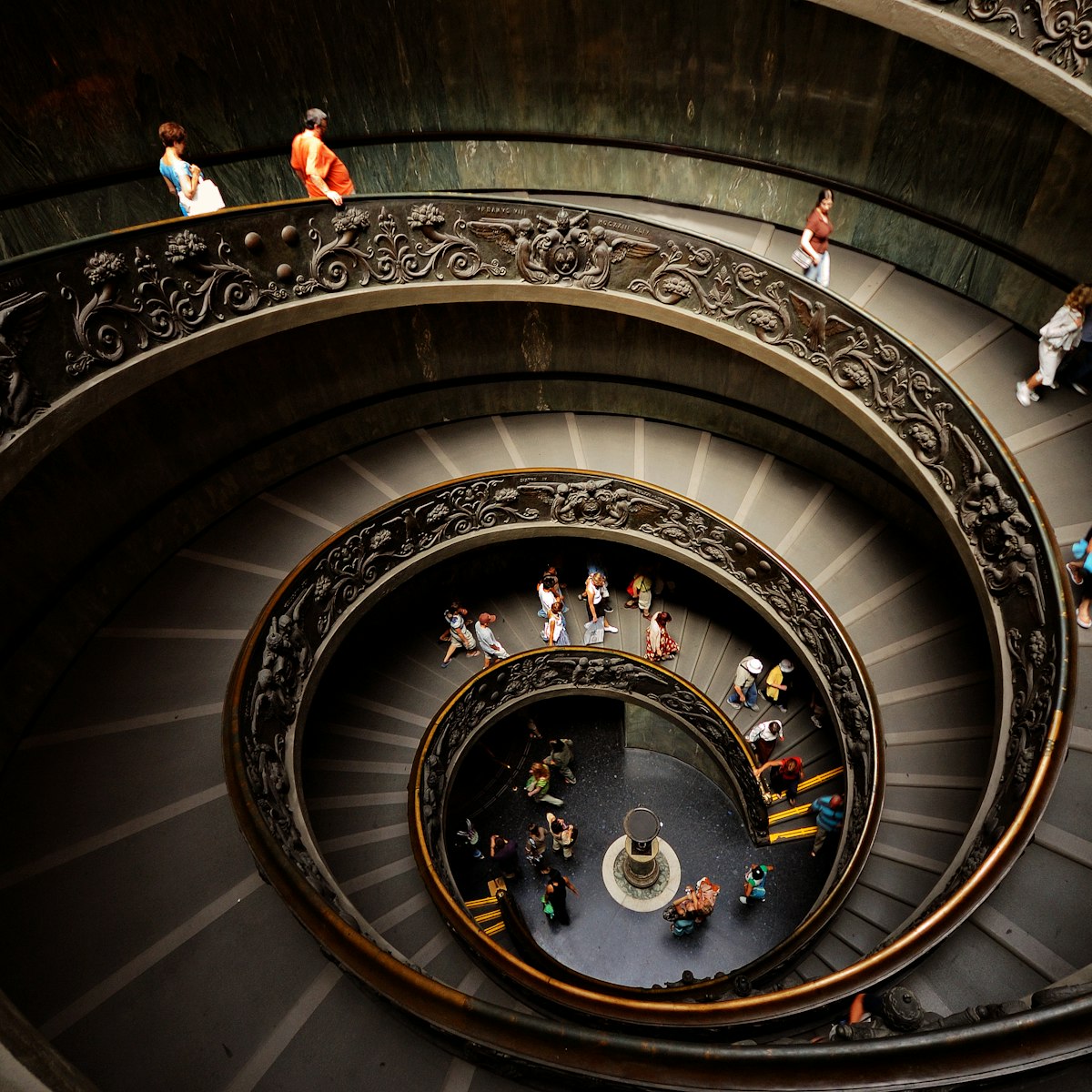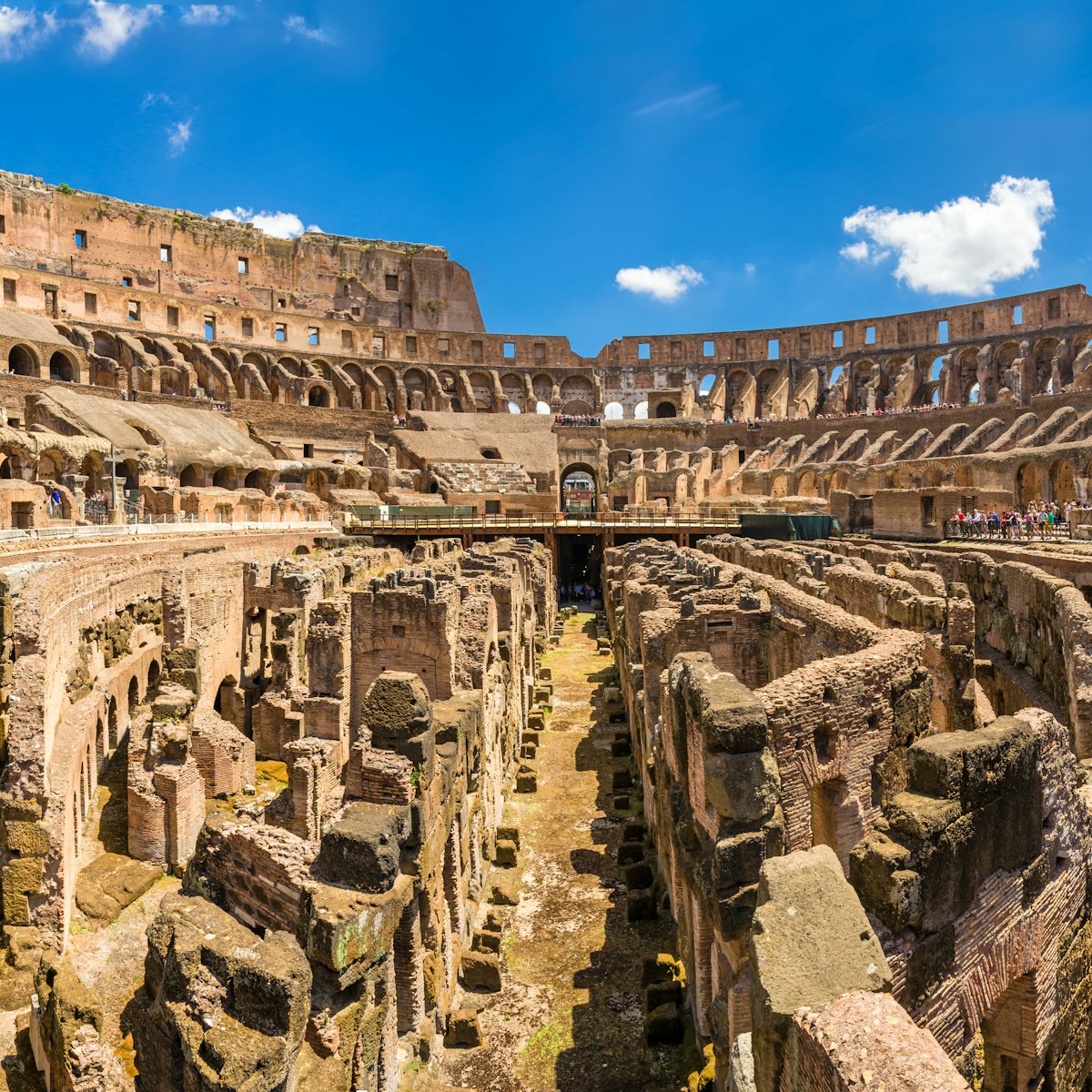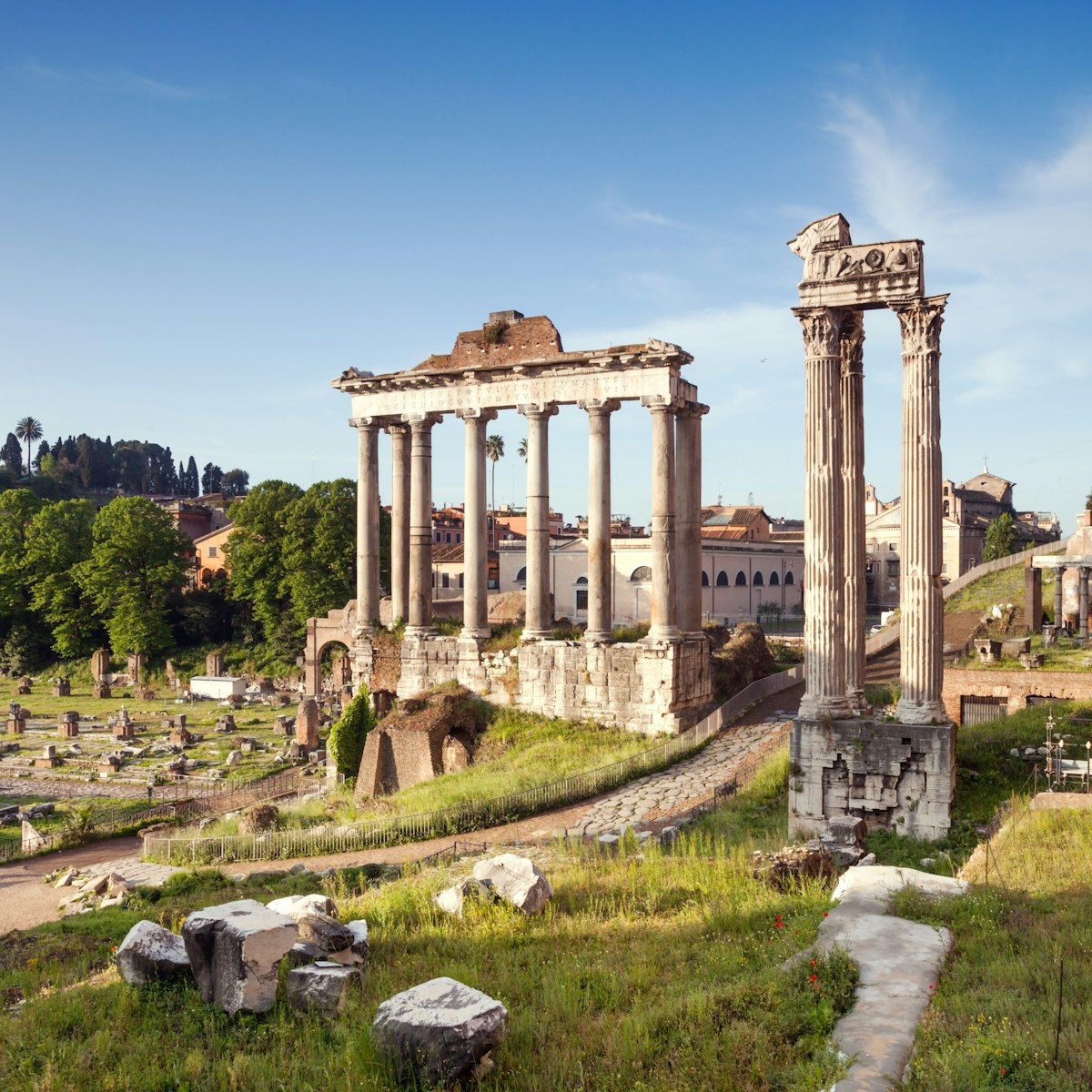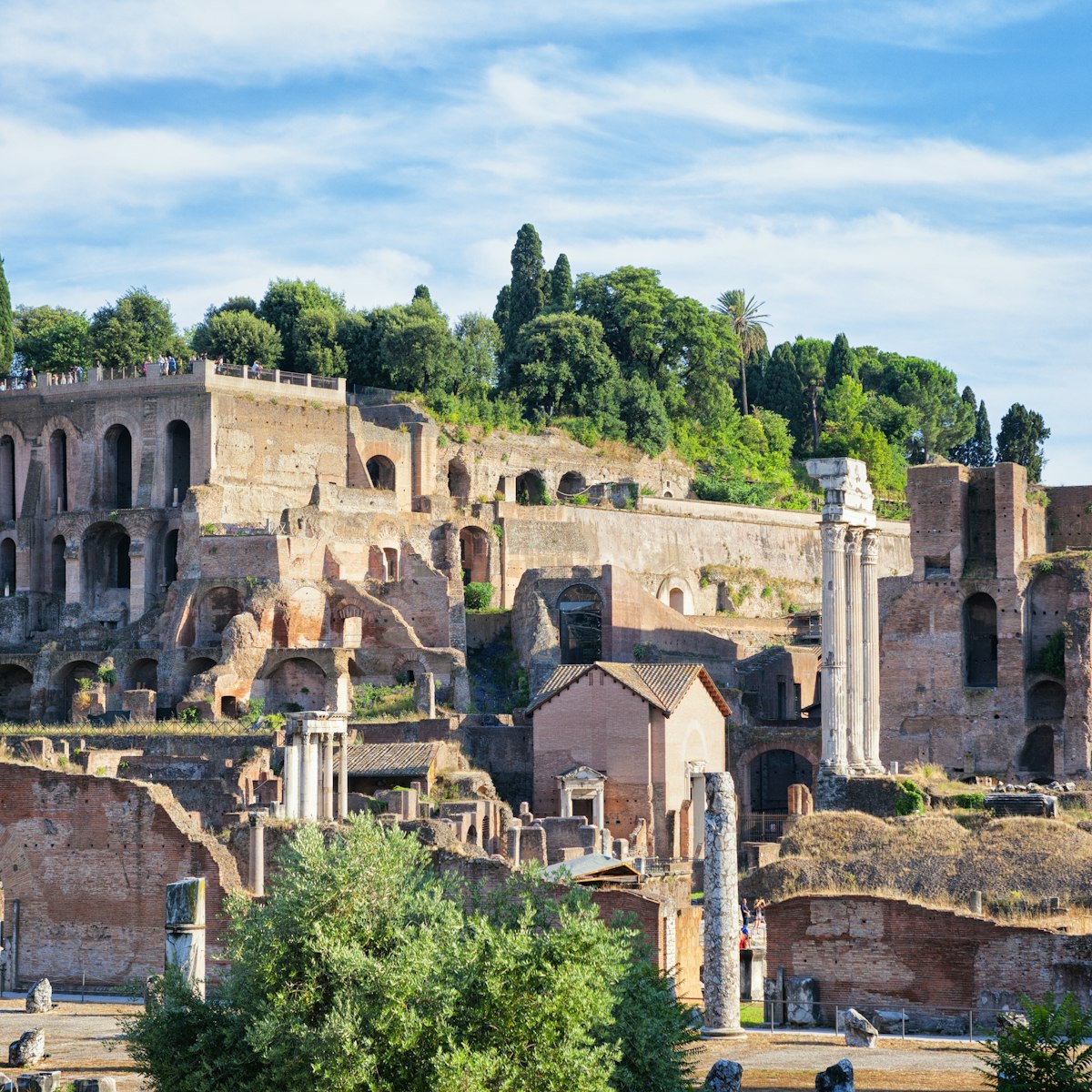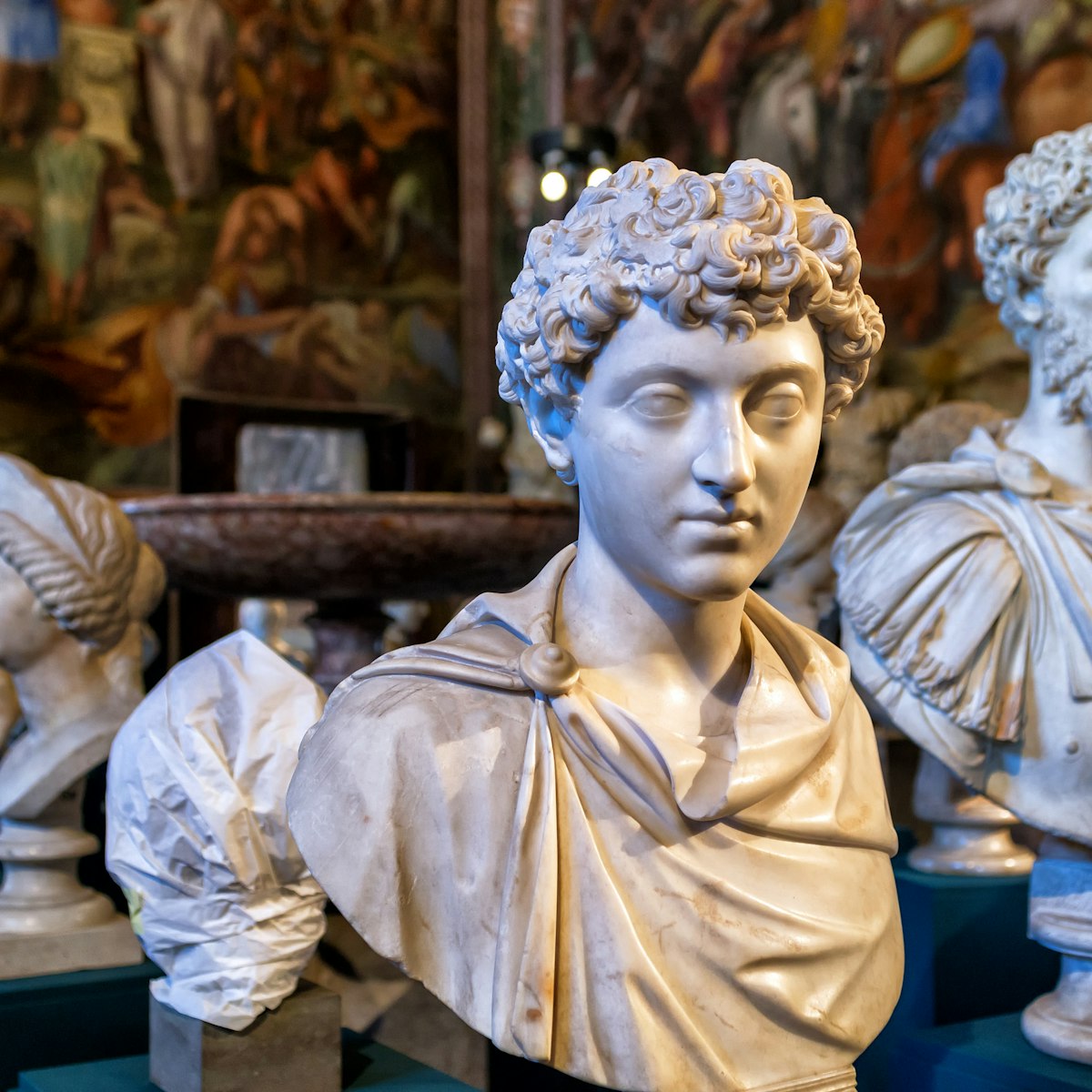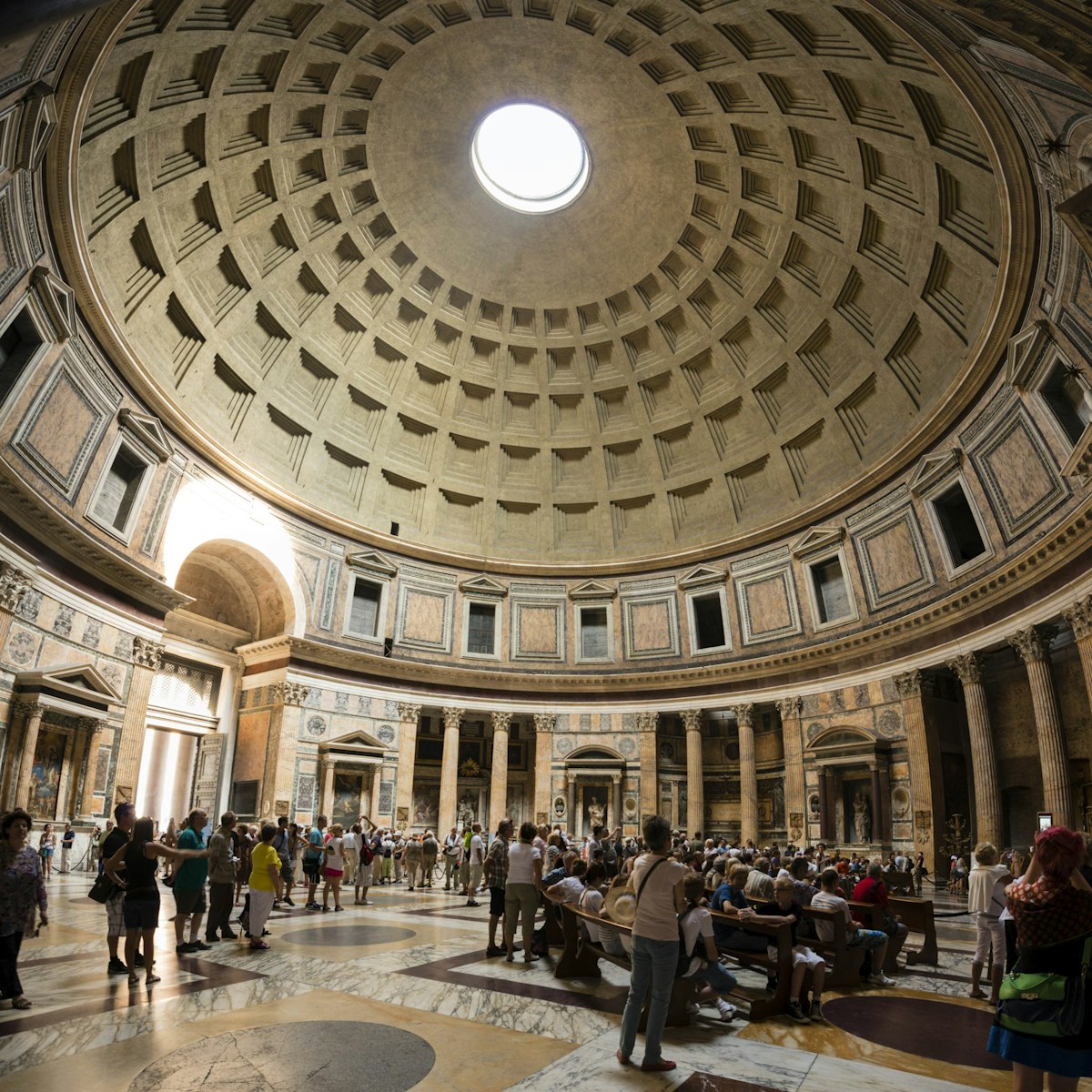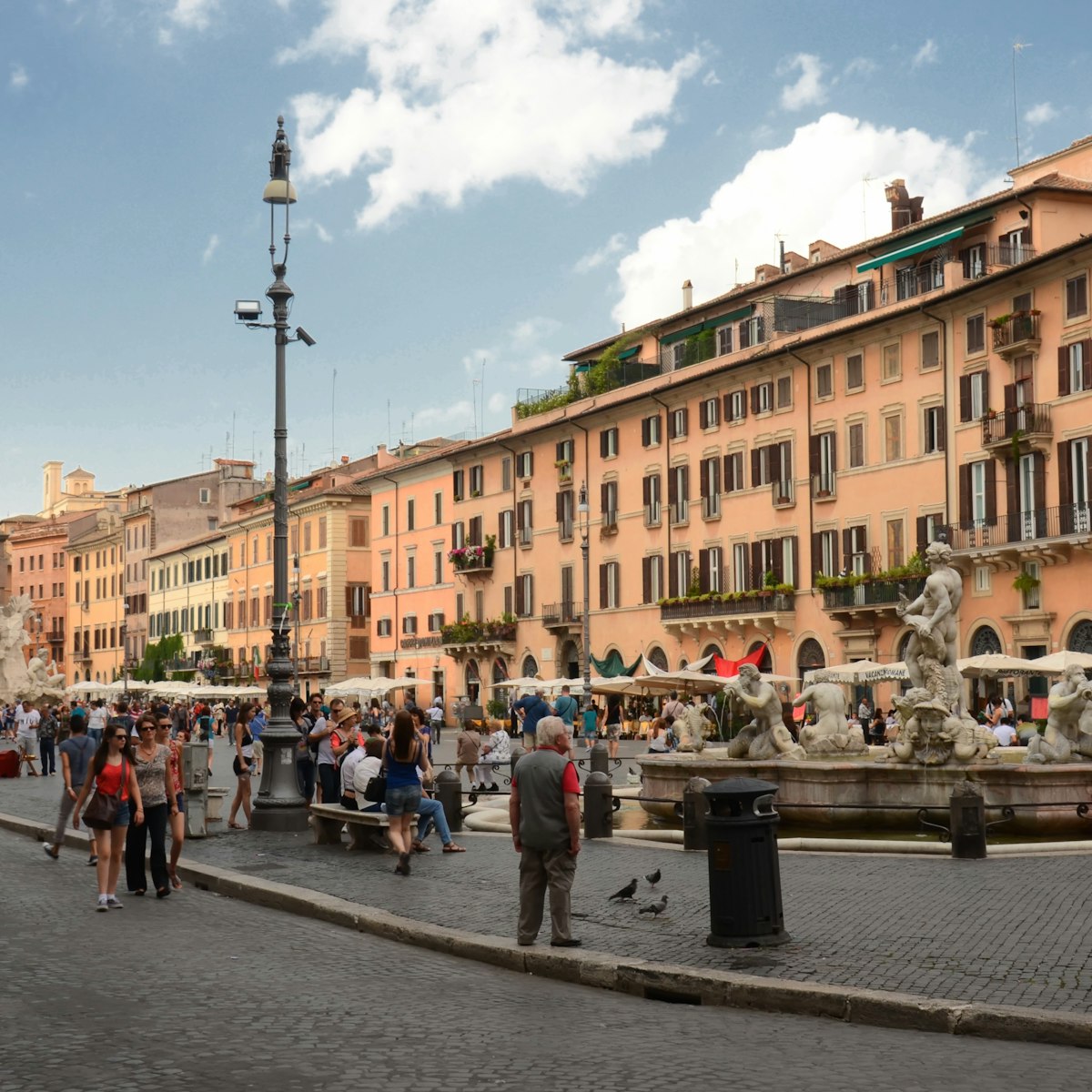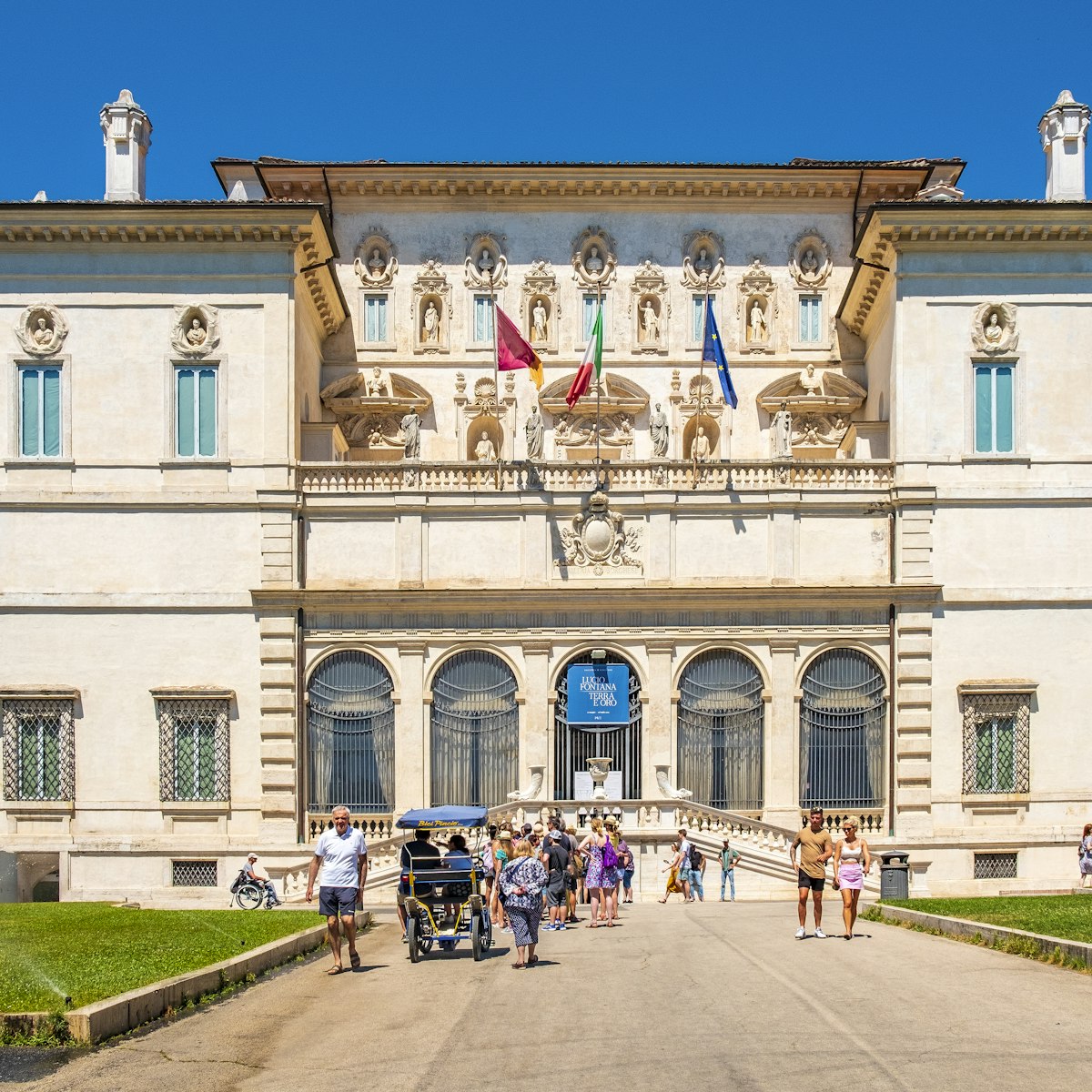Even in a city of outstanding churches like Rome, St Peter’s is special. Everything about the Vatican’s showpiece basilica is astonishing, from the sweeping piazza that announces it to its grandiose facade and lavish interior.
Chief among its many treasures are two of Michelangelo’s most celebrated works: his Pietà sculpture and the basilica’s landmark dome, a soaring masterpiece of Renaissance architecture that towers over the Roman skyline.
History of the Basilica
The original St Peter’s – beneath the current basilica – was commissioned by the Roman emperor Constantine and built around 349 CE on the site where St Peter was supposedly buried. But like many medieval churches, it eventually fell into disrepair and it wasn’t until the mid-15th century that efforts were made to restore it.
Construction began on the basilica in 1506. Progress was slow and when Bramante, the project’s chief architect, died in 1514 work ground to a halt. Little was achieved over the next few decades as architects, including Raphael and Antonio da Sangallo, sought to modify Bramante’s ambitious plans.
The breakthrough eventually came in 1547 when Michelangelo took charge. He simplified Bramante’s designs and drew up plans for what would become his crowning architectural achievement – the dome. He never lived to see it built though, and it was left to Giacomo della Porta and Domenico Fontana to finish it in 1590.
With the dome in place, Carlo Maderno inherited the project in 1603. He designed the monumental facade and lengthened the nave towards the piazza.
The basilica was finally consecrated in 1626.
Before you go inside
Check out Maderno’s epic facade. Built between 1608 and 1612, the colossal structure is 48m (157ft) high and 115m (377ft) wide. Eight massive columns support the upper attic on which 13 statues stand representing Christ the Redeemer, St John the Baptist and the 11 apostles.
The central balcony, known as the Loggia della Benedizione, is where the pope delivers his Urbi et Orbi blessing at Christmas and Easter.
Above the balcony, an inscription runs across the entablature: "IN HONOREM PRINCIPIS APOST PAVLVS V BVRGHESIVS ROMANVS PONT MAX AN MDCXII PONT VII". Translated from Latin, this reads: "In honor of the Prince of Apostles, Paul V Borghese, Roman, Pontiff, in the year 1612, the seventh of his pontificate".
Interior highlights
The cavernous 187m-long (614ft) interior covers more than 15,000 sq m (3.7 acres) and contains many artistic masterpieces. One of the most revered is Michelangelo's hauntingly beautiful Pietà at the head of the right nave. Sculpted when he was only 25, this is the only work the artist ever signed – his signature is etched into the sash across the Madonna's breast.
Nearby, a red floor disc marks the spot where Charlemagne and later Holy Roman Emperors were crowned by the pope.
Dominating the center of the basilica is Bernini's famous baldachin (canopy). Supported by four spiral columns and made with bronze taken from the Pantheon, this towers 29m (95ft) over the papal altar, itself situated over the site of St Peter’s tomb.
Look up from here and you’ll see Michelangelo's dome rising to a height of 119m (390ft). The cupola, based on Brunelleschi’s dome in Florence, is supported by four stone piers named after the saints whose statues adorn their Bernini-designed niches – Longinus, Helena, Veronica and Andrew.
At the base of the Pier of St Longinus is Arnolfo di Cambio's much-loved 13th-century bronze statue of St Peter, its right foot worn down by centuries of caresses.
Ancient jewels and papal tombs
For a blast of papal glitter, the Museo del Tesoro (€5) – accessible from the left nave – showcases a rich collection of sacred relics. Standout pieces include a tabernacle by Donatello and the 6th-century Crux Vaticana, a jewel-studded cross that was a gift of the emperor Justinian II.
Less showy are the Vatican Grottoes beneath the basilica. Free to enter, these contain the tombs of numerous popes, as well as several columns from the original 4th-century church.
Further underground is the necropolis where the tomb of St Peter is located. To visit this you’ll need to book a place on a guided tour run by the Ufficio Scavi (€13).
Climb the dome
St Peter’s dome provides a stunning perch for views over Rome’s rooftops. To reach it, you can climb the whole way (551 steps) or take a lift halfway and walk the remaining 320 steps. Either way, it's a long, steep ascent, not recommended for anyone who suffers from claustrophobia or vertigo. Get tickets (€8/10 without/with lift) at the entrance on the right of the basilica's main portico.
Go to mass with the pope
To attend a papal mass you’ll need to book free tickets through the Prefecture of the Papal Household. These run out quickly, so apply early, especially for Easter and Christmas services.
Tips and practicalities
The basilica is open daily from 7am to 6.30pm (7pm in summer). Entry is free but you’ll have to go through security checks on the piazza outside. The line for these can be long but it usually moves fairly quickly. To limit waiting time, come at lunchtime or in the late afternoon.
Watch what you wear. Vigilant security guards enforce a strict dress code so if you want to get in, no micro shorts, miniskirts or bare shoulders.
For much of the year, seminarians from the Pontifical North American College lead free, two-hour basilica tours. These generally depart at 2.15pm Monday to Thursday from the south side of St Peter’s Square. No tickets are necessary but check the website for details.
To get to the basilica, take metro A to Ottaviano or bus 40 or 64 from Termini train station.
Places to eat nearby
Avoid the tourist traps around the basilica and head to the nearby neighborhood of Prati.
For a salad or tasty panino stop off at the hit organic takeaway Re-bìo, while for something more substantial, join the fashionable neighborhood diners at Il Sorpasso.
